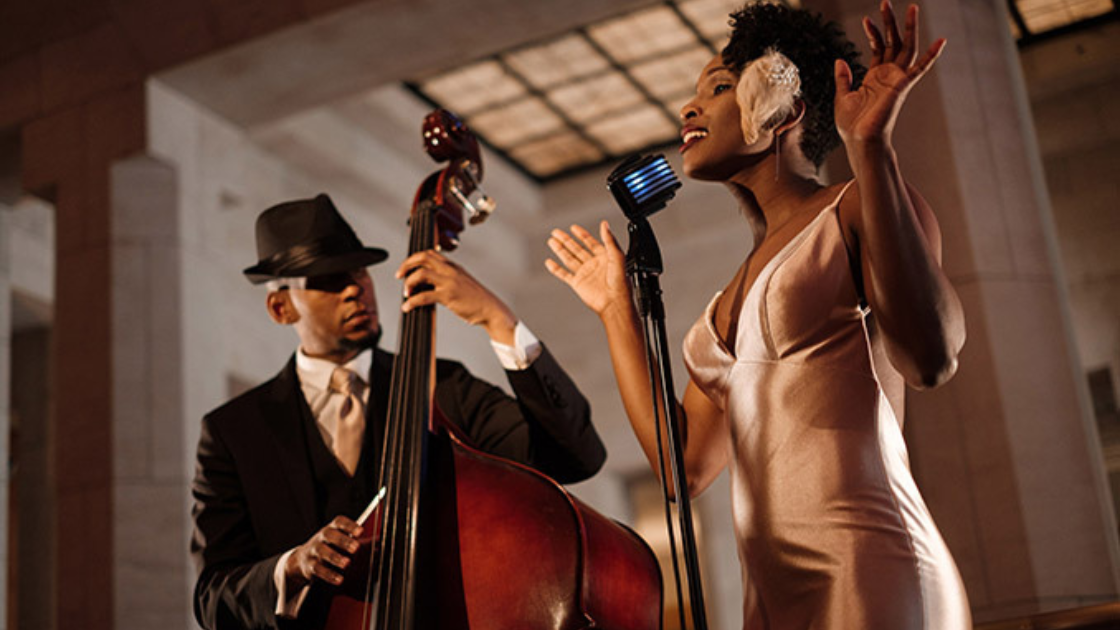As we prepare to welcome hot jazz band The Hot Sardines to the JAS Cafe, we take a look at the history of the music and how Prohibition advanced jazz.
“The parties were bigger..the pace was faster…and the morals were looser,” – F. Scott Fitzgerald on Prohibition.
While jazz music predated Prohibition, the new federal law restricting liquor advanced the future of jazz by creating a nationwide underground nightclub culture in the 1920s. Gangster-owned speakeasies replaced neighborhood saloons with mobsters such as Al and Ralph Capone of Chicago and Owney Madden of New York vying for the best performers for their drink-swilling customers, advancing the careers of major jazz performers like Louis Armstrong, King Oliver, Duke Ellington, Fats Waller and more.
Six months after Prohibition became law, women got the right to vote. Suffragettes were on the front line of this landmark battle, but flappers became the most visible heroines of the Jazz Age. The only grown women sporting short skirts and bobbed hair, flappers were easy to spot. They hung out in speakeasies and nightclubs where they danced the Tango, the Black Bottom and the biggest craze of all – the Charleston – with bare arms and legs flying. Everyone blamed it on the music. An article in the August 1921 edition of The Ladie’s Home Journal posed the question, “Does Jazz Put the Sin in Syncopation?”
Prohibition broke down old social barriers. In many New York speakeasies rich people and ordinary folks rubbed shoulders. The illicit club culture promoted integration, leading to what were known as “black and tan” clubs with multiracial crowds, a trend nearly unprecedented for an age in America when segregation was not only the cultural norm but a common government policy.
It was the stock market crash of 1929 that signaled the end of the party for speakeasies. The Roaring 20s came to a close in economic chaos, and the lighthearted atmosphere of the Prohibition Era fizzled out. But the devotion of jazz shown by the Capone brothers and other business-minded mobsters during Prohibition not only benefited jazz greats like Armstrong, Ellington and Waller, but with them, the future of jazz as an enduring genre of American music.


